9 Tech-Free Assessment Review Games For K-12 Teachers
Teachers put countless hours into preparing classroom lessons and teaching new concepts. In addition to this, teachers must consistently invest time into strengthening students’ information recall ability. Otherwise, students are put at risk of forgetting newly learned skills and concepts despite concept mastery. Student forgetting often results in poor performance, which undermines students’ academic confidence and teachers’ instructional efforts.
Fortunately, there is something teachers can do to engage and improve students’ knowledge retention. With gamified learning, teachers revisit key concepts with students in a fun and interactive way, and tap into students’ memory banks. A recent cohort of Rutgers Alternate Route teachers designed low-tech classroom games aimed at stimulating student memory retention. These games use exciting and entertaining review formats to encourage information recall. Free for all to access, these games can be viewed with online collaboration tool, Padlet. Click the images below to browse each game design and access detailed instructions.
Here are nine teacher-designed, and classroom-tested lesson and assessment review games.
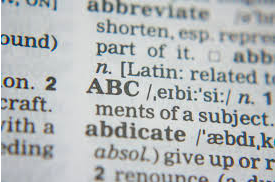
1. Hot Seat: Vocabulary Review Game
Alexander Hansen prepares his students for tests by putting them in the “hot seat”. Split students into two even teams and have a representative from each team sit in the ‘hot seats’- two chairs facing away from the board and towards the front of the class. The objective of the game is for the team representative to guess the vocabulary word the teacher wrote on the game based on the definitions their teammates give them. Once the vocabulary word is guessed correctly students rotate.
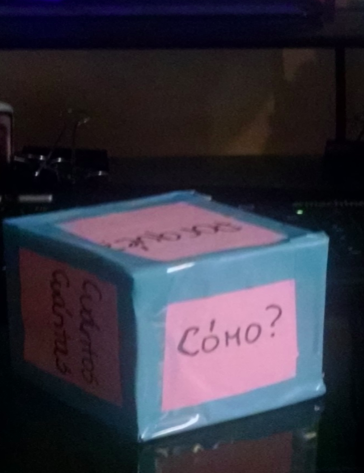
2. Word Cube: Foreign Language Sentence Construction Game
Ofelia Rodriguez prepares her students for Spanish assessments by playing the Word Cube game. Students are split into teams as evenly as possible. The Question Words Cube consists of one word on each side. A player from each team rolls the Question Words Cube, and team must form a complete sentence using the word that appears on the top of the cube. The team with the most correct sentences wins.
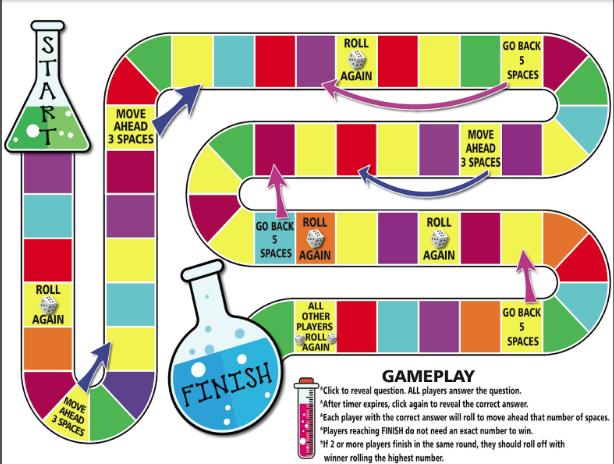
3. Game Play: Chemistry Board Game
Jim D. crafted a board game to prepare his chemistry students for assessments. Players must answer questions associated with each space before time runs out. After answering correctly, students roll die to move ahead and continue competing. The objective of this game is to be the first to finish.
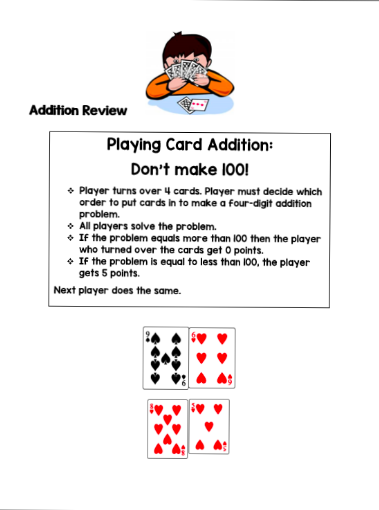
4. Playing Card Addition: Addition Review Game
Monique Phua designed a card game for her class to practice addition. Each student is given four cards. Students must decide which order to put cards in to make a four-digit addition problem. If a student's cards add up to more than 100 they get 0 points. If the addition problem is equal to less than 100, the student gets 5 points. Whichever student earns the the most points wins.
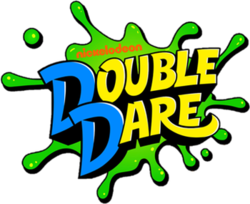
5. Double Dare: History & Economics Review Game
Vinnie Giardina, high school history and economics teacher, designed a class review game similar to the 90's Nickelodeon show, “Double Dare”. The class is split into two groups and the teacher acts as the game show ‘Host’. One of the teams is randomly selected to start off the first round, and the teacher poses a question to the first team up. This team must submit an answer under a time limit. If the team is stuck on the question they can pass it to the opposing team or ‘Dare’ them to answer for more points. If neither team knows the correct answer the original team can opt for a ‘Physical Challenge’. For the Physical Challenge, the teacher gives one student from the team a clue as to what the correct answer is, and he or she has 30 seconds to find an item related to the answer that the teacher has hidden in the room. The team with the most points wins.

6. Darts: Heredity Review Game
Adalah Jawabrah preps his students for their Heredity assessment with a simple dart game. This game is played using a Dartboard. Students throw a dart and answer questions associated with the area of the board that the dart hits! The student who answers the most questions correctly wins.
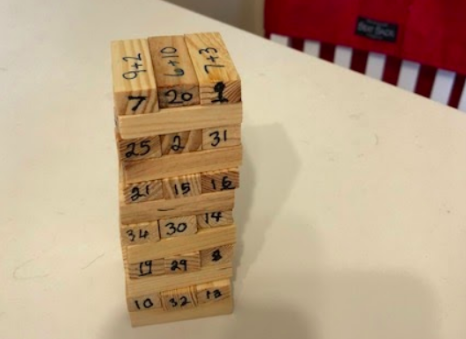
7. Jenga: Subtraction Review Game
Michelle Cook transforms Jenga blocks into an addition and subtraction review game based on her Operations and Computations math unit. The students are given a Jenga tower with math equations and digits on them. They must either solve, or create addition and subtraction equations. The student with the most game pieces wins.
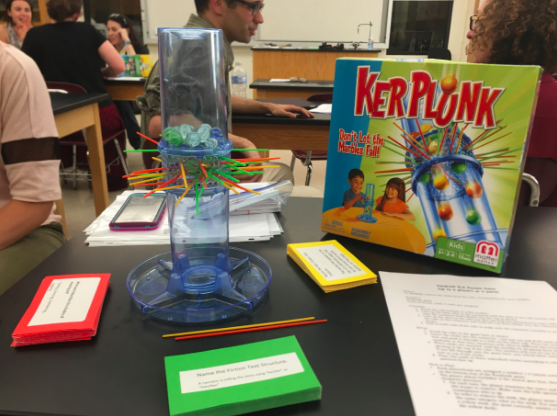
8. Ker Plunk: 4th and 5th Grade ELA Review Game
Kim Elber reviews ELA concepts with her 4th and 5th class with a game called “Kerplunk”. Each player/team is assigned a number 1-4, which corresponds to the number on the bottom tray of the Kerplunk game. The player whose birthday is the closest to the date the game is played gets to compete first, with the game continuing in a clockwise direction. A problem is assigned and read aloud by the teacher (‘host’) based on where the player lands. The player who lands on the question must answer it. If the player answers the question correctly, he or she removes a stick from the Kerplunk game and puts it aside. The player also collects marbles that fall from the tower when sticks are removed. The player or team with the most marbles wins.
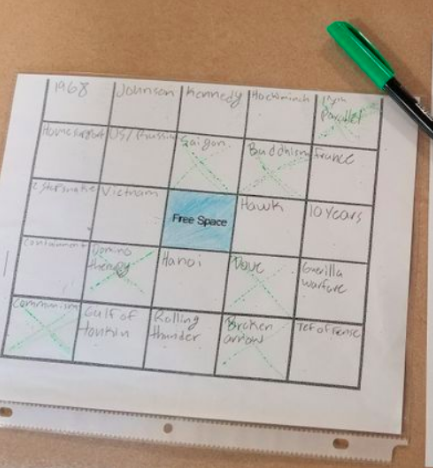
9. HISTORY...Bingo Style: Test Review Game
Lauren McVey uses HISTORY...Bingo Style to prepare her students for assessments. Students are given a blank bingo sheet with a Free Space, and a clear sheet protector (so that students can write freely). The teacher randomly calls out assessment questions. Students then use the back of their sheet to find the matching answer and put an X over the correct box. The first student to get Bingo earns 3 points, the next earns 2 points, and the final receives 1 point. These points are added to their test score the next day.

 Heather Ngoma has over 25 years of experience collaborating with educators across New Jersey to drive education innovation. She currently serves as the Director of the Rutgers-GSE Alternate Route Program in the Department of Learning and Teaching, a program which helps career changers, recent college graduates, and other aspiring education professionals become licensed teachers in New Jersey. Follow her on Twitter @heatherngoma.
Heather Ngoma has over 25 years of experience collaborating with educators across New Jersey to drive education innovation. She currently serves as the Director of the Rutgers-GSE Alternate Route Program in the Department of Learning and Teaching, a program which helps career changers, recent college graduates, and other aspiring education professionals become licensed teachers in New Jersey. Follow her on Twitter @heatherngoma.





